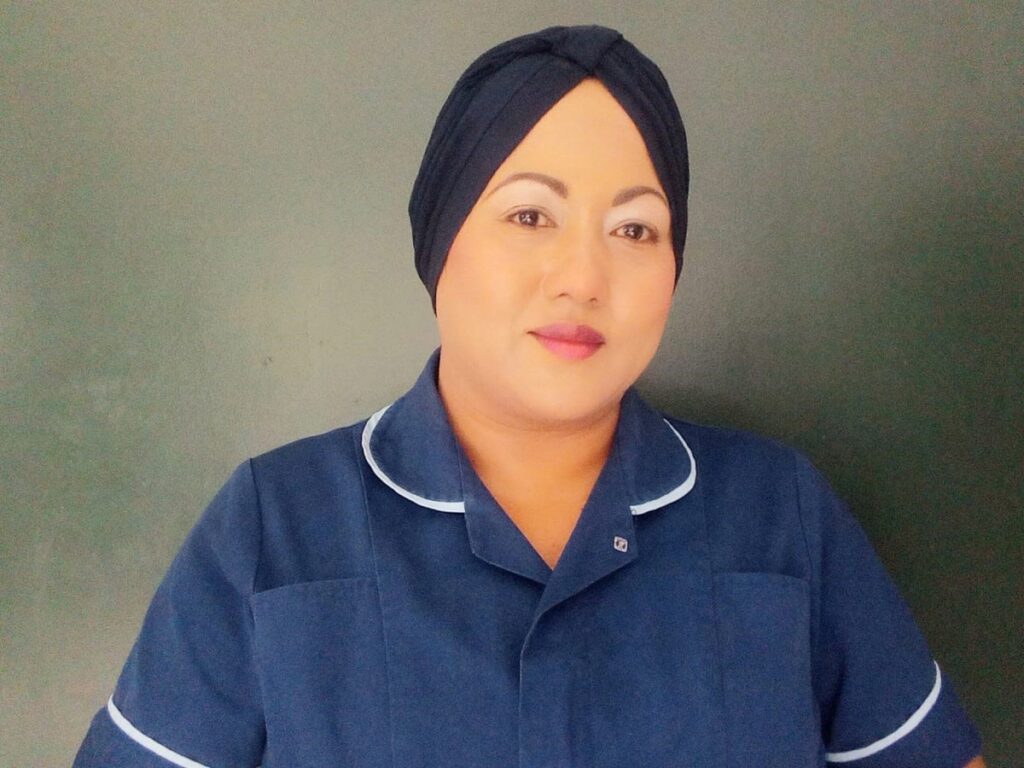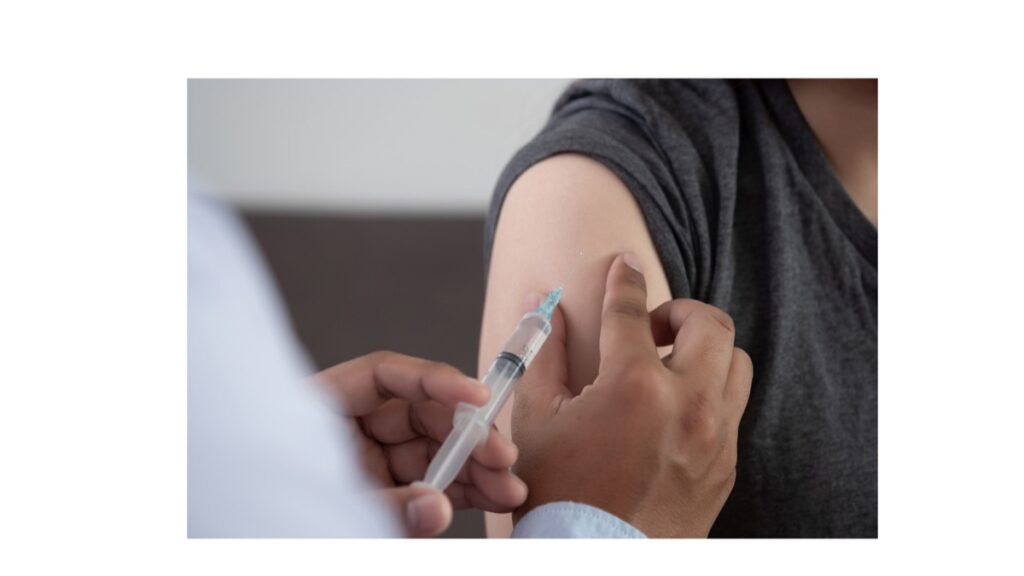“If you’re a mum-to-be, it’s important to talk to your midwife and trust them to work with you. We’ll support you and your baby during pregnancy, birth and the post-natal period to ensure good health and well-being.”

[Produced in Partnership with the NHS]
There are few things that match the joy of a new arrival in the family, says Rukeya Miah, Deputy Associate Director of Nursing, Senior Midwife and Professional Midwifery Advocate in Bradford. She shares her advice for those who are planning for a baby in the future or expecting a baby in the coming months.
I’m an experienced midwife, and the role of a midwife is to work in partnership with the mum-to-be for a safe and happy pregnancy. We’ll provide support during pregnancy, birth and the post-natal period to ensure good health and well-being throughout.
It’s really important that you are able to talk to your midwife and trust them to work with you, helping you to make decisions about your care and labour that are right for you.
Before and during pregnancy

• Ask about diet and exercise 
Your midwife or GP practice can give you advice on maintaining a healthy and balanced diet, so you and your baby get essential nutrients. Being active will help you adapt to your changing body and support your baby’s development and growth.
• Take supplementsTaking folic acid before pregnancy up until 12 weeks after you’re pregnant can help to prevent neural tube birth defects. We get our Vitamin D from the sun and it helps to keep our bones, teeth and muscles healthy. During the winter months, many of us are likely to have a deficiency, so if you have darker skin and spend a lot of time indoors or tend to cover up when you’re outdoors, it’s helpful to take supplements.
• Have your vaccinations: During pregnancy, your immune system is weakened, so you’ll be less able to fight infection.
• Flu vaccine: Evidence shows that getting flu whilst pregnant increases the risk of developing complications, particularly in the later stages of pregnancy and the baby may be born prematurely or have a low birth weight. The flu vaccine is safe and effective for pregnant women and has been recommended for years across the world. Having the vaccine whilst pregnant passes protection on to babies, which protects them for the first few months of their lives.
• COVID-19 vaccine
Pregnant women, particularly those from South Asian backgrounds are at greater risk from becoming seriously ill with COVID-19. We know from some tragic cases that COVID-19 can cause complications for both mother and baby, with a higher risk of hospital admission into intensive care, premature birth, pre-eclampsia, and stillbirth.
Vaccination is the best protection against the known risks of COVID-19 during pregnancy for both you and your baby. You can get vaccinated at any time before, during, or after pregnancy and while breastfeeding, and is recommended by the Royal College of Obstetricians and Gynaecologists and Royal College of Midwives. COVID-19 vaccines do not contain ingredients that are harmful to mother or babies and there is no evidence of them affecting fertility.
Some of the mothers vaccinated in 2021 are now coming and getting vaccinated in their second pregnancy. Studies show antibodies that you produce in response to the vaccine also give your baby protection for six months after they are born. This reduces the risk of them needing hospital treatment for severe COVID-19 related illness.
Ask about managing long-term health conditions: Making sure you’re in good health before you’re pregnant is the best start, particularly if you have any long-term conditions. Accessing services before and between pregnancies is important and your healthcare team is ready to help you. You can work together to manage your support needs before and during pregnancy.
During pregnancy

Book your antenatal care: Once you know you’re pregnant, speak with your midwife or GP practice to arrange pregnancy (antenatal) care. Before you’re 10 weeks pregnant, you’ll see a GP or midwife, but if this hasn’t happened, contact your GP practice. If you aren’t registered with a GP practice, you can find a GP near to your home. Everyone has the right to a GP and it’s free to register.
Screening and scans: Your midwife will advise you about screening tests and scans that are available and how they could improve the care for you and your baby. You will normally be offered:
• 2 pregnancy ultrasound scans between 8 to 14 weeks and 18 to 21 weeks. These scans help to monitor the baby’s health and growth in the womb and identify if there are any problems with the baby’s development.
• Antenatal screening tests highlight if there is a higher chance of a health problem or condition that may affect you or your baby (e.g Down’s syndrome, Edward’s syndrome, Patau’s syndrome and a number of physical conditions).
• Blood tests that are usually carried out before you are 10 weeks pregnant will check for syphilis, HIV and hepatitis B.
• Screening for sickle cell and thalassaemia should be taken within the first 10 weeks of a pregnancy. This test identifies if you’re a carrier of the sickle cell or thalassaemia gene and could pass the condition to your baby. This will help to ensure your baby gets the best care if they are likely to have the condition. Sickle cell disease is a serious and lifelong health condition that affects red blood cells. This hereditary condition is more common in people from South Asian and other ethnic backgrounds.
Whooping cough vaccine: Whooping cough can be very serious for young babies and those who are too young to start their vaccinations are at greatest risk, with most will needing hospital treatment. Pregnant women can help protect their babies by getting vaccinated – ideally from 16 weeks up to 32 weeks pregnant. If for any reason you miss having the vaccine, you can still have it up until you go into labour.
Talk to your midwife if you don’t feel well: If you have COVID-19 or flu symptoms or something else that’s worrying you, speak with your midwife or maternity team right away to get their advice.
Where to go for help

There are many NHS services that can give you help and advice when you’re not feeling well:
• a local pharmacy for advice about minor ailments, symptoms or existing prescriptions
• a local GP surgery for advice and treatment of a range of existing and general health issues delivered by a variety of healthcare professionals
• an urgent treatment centre for help with cuts, sprains, strains and minor burns
• 999 or a local accident and emergency (A&E) department for serious or life-threatening conditions
• Visit 111.nhs.uk or call 111 if you have an urgent medical problem and you’re not sure what to do
• The NHS app for your phone or tablet allows you to get a COVID pass for travel, and access to your health records and to reorder existing prescriptions.
Getting help from the right service ensures you’re seen quicker by a skilled professional who can help manage any health concerns and get treatment that works for you.
Where possible, you should speak with your GP practice about any ongoing health concerns. Everyone is entitled to register with a GP practice free of charge, even if you don’t have proof of address or immigration status, ID or an NHS number. If you’re in a different area to where you normally live or aren’t registered to a practice, you can contact any GP practice that is local to you.
You can book your COVID-19 vaccine by scanning the QR code below. To book your COVID-19 or flu vaccine, you can also call 119 for free or visit www.nhs.uk/wintervaccinations
















